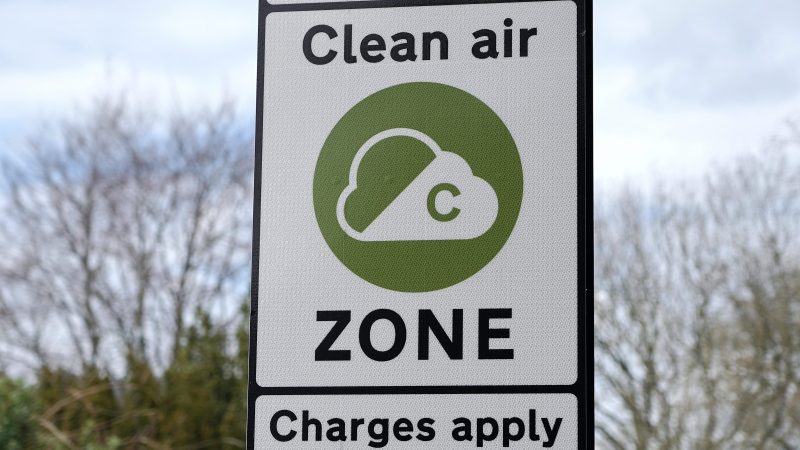
A recent study from the University of the West of England found that while young children, young adults and households in poverty have the highest levels of exposure to air pollution, it is the richer households who are more responsible for it. The scandal of air pollution and the failure to meet legal air quality standards should exercise the mayors and leaders of cities and towns, as well as UK government ministers. The pollution triggers serious health conditions, including strokes, heart attacks and lung cancer.
In Greater Manchester, however, mayor Andy Burnham, local councillors and MPs have asked the government to change plans to introduce a ‘clean air zone’, which would charge the most polluting vehicles to enter the most polluted areas of the city. Other areas such as Bristol, Leeds, Sheffield and Southampton have seen plans for clean air zones watered down or delayed.
Withdrawing local initiatives that would tackle climate change and air pollution is sadly not new. Previous plans for national road pricing and congestion charging in Greater Manchester were withdrawn in 2008, following a lack of partnership between national and local government that resulted in significant public opposition.
This is despite strong evidence that they work. In London, the introduction of the ultra-low emissions zone (ULEZ) has reduced roadside nitrogen dioxide (NO2) pollution by 36%, according to analysis conducted before the impact of the pandemic. Long-term, the impact of the congestion charge and other measures has cut the numbers of people living in illegally polluted areas in London by 94%.
As well as saving thousands of lives, research from the Confederation of British Industry (CBI) shows the economic benefits of clean air zones. In Manchester, analysis by CBI Economics showed that as well as cutting hospitalisations, a clean air zone would boost local business by cutting the number of sick days. Adding 598,200 working hours each year through increased workforce participation could provide an economic boost of more than £7.1m to the city region.
Of course the benefit of cleaner air wouldn’t just be felt by residents who live and work in Greater Manchester. Around 553,000 workers who live outside of Greater Manchester commute into the city region for work and 68 million visitors come to the city region each year. A much larger group of the UK’s population would therefore be breathing cleaner air.
The plans being considered by mayor Sadiq Khan to introduce a ‘journey charge’ in London need exploring seriously. But they would only work and be accepted by Londoners if they come with a major, comprehensive and easy to access scheme to support people to switch to cleaner transport. We have to support people and small businesses through this change.
UK100, which represents mayors and council leaders, has campaigned for a £1.5bn scrappage scheme to support SMEs and low-income households switch from diesel and petrol vehicles to public transport, hybrid or electric. There is money available for such schemes, whether in London or Manchester. But even in London, the ULEZ scrappage scheme faced problems, with insufficient funding to help those affected, and a limited timescale to apply. As well as protecting lives, we have to protect the livelihoods of low-income families, sole traders and small business owners.
It is not just about public money, though. We need the private sector to step up and additional investment from financial services industries could reduce the burden on the poorest in our society to pay for scheme costs. Why couldn’t a scheme be established – perhaps by the new British Infrastructure Bank to fulfil its net-zero mandate – that provides low-cost loans to small businesses to make the transition to zero-emissions transport? With support, plumbers, taxi drivers and delivery firms can make the switch. We’re already seeing thousands move to an electric van or taxi, or using cargo bikes for local deliveries. There will be start-up costs of course, but significant long-term savings in fuel and taxes.
This isn’t just about clean air. Every aspect of net zero will impact the economy, whether it is retrofitting our homes, cleaning up our energy or changing the way we work. We cannot simply legislate our way to net zero or clean air. These are economic changes, and we need to ensure they don’t penalise particular groups. But with adequate support from UK government in the form of greater investment, together with effective local and national partnership and leadership, we can smooth the road to cleaner air.




More from LabourList
Government announce SEND reform in schools white paper
SPONSORED: ‘Industrial hemp and the challenge of turning Labour’s priorities into practice’
‘A day is a long time in politics, so we need ‘action this day’’